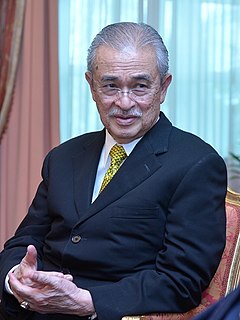A Quote by Peter Bergen
Islam is, to be sure, a big tent, and the one and a half billion Muslims in the world run the gamut from mystical, moderate, pacific Sufis to Salafists.
Related Quotes
If you have a billion Muslims, 900 million of them were not brought into Islam by any kind of invasion, but most of them through the Sufis, because human beings are such that they are affected by people of spiritual character. Certainly when they display nobility and hospitality and gentility and love and are not selfish or aggressive, and they are honest.
Sufis have always been those that have tried to purify the ethics of Islam and society. And they don't have their hands cut off from the external action at all. For example, the bazaar in which the Sufis were very strong always dominated economic life in Islamic world. They could give a much more sane and Islamic form of activity when the economic life of Islam moved out of the bazaar to new parts of Islamic cities with modernized Muslims, who took it in another light and it became very, very anti Islamic, and much against many of the most profound practices of Islamic societies.
Rather than being a 'perversion' of Islam, it is truer to say that the version of Islam espoused by ISIS, while undoubtedly the worst possible interpretation of Islam, and for Muslims and non-Muslims everywhere obviously the most destructive version of Islam, is nevertheless a plausible interpretation of Islam.
When I was in the US, I felt that the discourse there surrounding Muslims as the other, problematising Muslims and Islam as the other was very similar to what we find in Australia, which is that the image of Islam is a constructed image in the West. We are starting from a point of view that Islam and Muslims - well Islam is a violent, misogynistic, hateful religion and that is where the debate always starts from - that presumption underlies the discourse.
The religiously observant is lumped in with the nominal Muslim, the nominal Muslim is lumped in with the non-Muslim and the radical. If we want to make sense of this mess and stop pushing Muslims into the arms of the extremist, we need to make meaningful distinctions between the religion of Islam that a billion Muslims follow and see as a guidance as a peaceful righteous moral life and the puritanical Islam of a minority which so captures the media's attention.
If we are true small 'l' liberals, it's our job to seek out feminist Muslims, ex-Muslims, liberal Muslims, dissenting voices within Muslim communities, gay Muslims - we should promote those voices and in doing so, we demonstrate Islam is not a monolith, Muslims are not homogenous, and that Muslims are truly internally diverse.


























